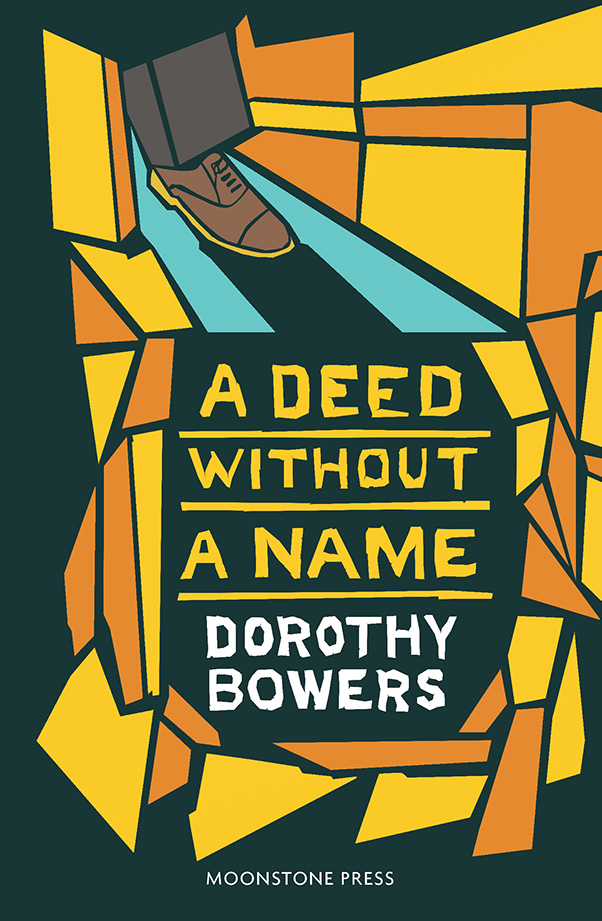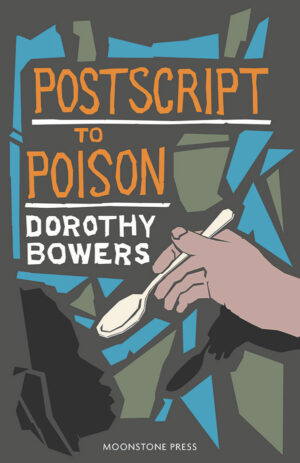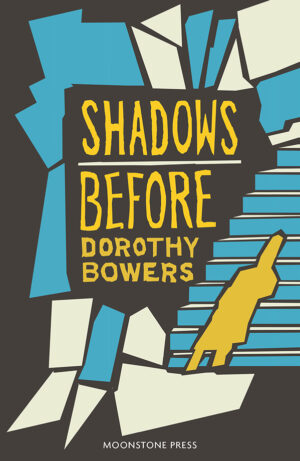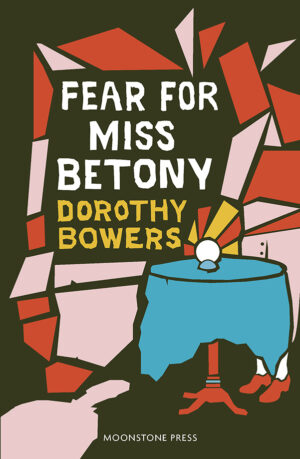A Deed Without a Name
“My accidents can’t be accidental. Very well, there’s only one thing they can be–and that’s attempted murder.”
Archy Mitfold had always loved a mystery, but he never expected to take the lead role in a thriller. Yet there was no doubt in his mind that someone was trying to kill him. First there was the narrow miss on Trumpeter’s Row, where a car accelerated straight at him. Then there were the chocolates Archy received on his birthday—with an unsigned card—that made him ill. Most recent was the sharp push in the back that almost sent him sprawling in front of an oncoming commuter train. What does Archy know that someone is willing to kill for? And does the recent kidnapping of millionaire Sampson Vick have anything to do with his accidents? Or is all this just the sign of self-absorbed and histrionic young man? Before long, Chief Inspector Dan Pardoe is called to investigate and untangles more than one mystery in the process.
A Deed Without a Name has a well-realised and atmospheric setting during England’s “phony war” period in 1939.
£9.99
By Dorothy Bowers
First published in 1940 by Hodder & Stoughton
Paperback
304pp
ISBN 9781899000128
Interesting links: A review of Deed (with some spoilers) from Pretty Sinister Books
Table of Contents
Introduction
I Riddle-Me-Ree
II A Visit and a Visitor
III Ding Dong Bell
IV Quest
V Rope’s End
VI Witches’ Sabbath
VII Curious Behaviour of a Young Man
VIII A Word of Mr. Vick
IX At the Sign of the Juniper
X – Of Accidents
XI – Of Incidents
XII Salt is Doubtful
XIII Pardoe is Unsuccessful
XIV The Most Unlikely Person
XV At Mulberry Fountain
XVI The Most Likely Person
XVII At the Cinema
XVIII Gas
XIX Vacant Possession
XX Last Word of Mr. Vick
XXI A Bump on the Head
XXII Leaves from a Diary
XXIII The Bird
1 review for A Deed Without a Name
Only logged in customers who have purchased this product may leave a review.
You can hardly put it down to coincidence,” Beltane protested. “Two perhaps, but not three.” It was characteristic of him to register formal dissent from an opinion nobody had voiced.
Tony Wynkerrell gave a sly smile. He was finding it agreeable after four cups of tea to lounge by a good fire in another man’s rooms on an October afternoon, listening to the rumble of Victoria Street below, and reflect how well Beltane did himself wartime weekends on a junior schoolmaster’s salary.
“Our good Philip is revolted at the mere idea,” he said in his languid voice, a lazily roving eye taking in both young men, “though actually it’s the alternative should revolt him more. But it’s the academic mind that does it. Catch a schoolmaster countenancing such frivolous tampering with logic as coincidence implies. He’s all for cause and effect, not a bit of byplay against the rules. So—Archy’s accidents can’t be accidental. So—”
“So you’re a confounded ass, Winkle.” Beltane took him up hastily in a tone less good-tempered than the words. “Blow your blinking cause and effect. You’re simply talking for the one without the other. It isn’t a question of what I or you —”
“Oh, shut up, both.” said Archy Mitfold, wriggling further back on the rug as the fire spouted fresh heat. He hugged his knees more tightly, with a sideways glance to the left at Tony’s elegant legs slung across the arm of his chair, then to the right where Philip lolled, pulling at his pipe in short vexed puffs. He was feeling for both an unflattering distaste did not experience on those occasions when he had each alone. The St. Crispin’s Old Boys’ lunch, attended annually by an ill-assorted gathering of Crispians, where one looked hopefully for one’s contemporaries and then wished one hadn’t found them, was as liable to prod ancient antagonisms as fail to fan the spark of some deathless friendship, and he half regretted the impulse which had made him wind up a disappointing afternoon at Philip’s hotel with an account of his own misadventures.
Not that he had told them everything. Not by a long chalk. It would not do at this stage. But these two would make even a synopsis an excuse for the bickering which, because it had persisted since schooldays, seemed to him merely puerile.
He drew a quick breath and said with a rush before either could speak: “I know what you mean. I’m beginning to think the same thing. My accidents can’t be accidental. Very well, there’s only one thing the can be— and that’s attempted murder.”
“Rubbish,” Beltane said briefly in his best housemaster manner, detecting the shrill note that sharpened the last word. “You’ve no proof even that the chocolates were tampered with since you’ve not had them analysed.”
“All right,” Archy said. “But if you deny coincidence I don’t see, like Winkle, what else you’ve got to admit but murder. Anyway, if there is a yearning to bump me off it won’t stop at this. There will be another go soon.”
A faint excitement behind the unemphatic words communicated itself to the other two.
“Look here, old man,” Beltane urged, “forget what I said about coincidence. I know—everybody knows—it plays some damned odd tricks. You had a beastly tummy-ache, p’raps from a chill or something you’d eaten, and you immediately put it down to an anonymous gift of chocolates—because they were anonymous, I’ve no doubt. As for—”
“Yes. As for being nearly pushed under a train and all but run down by a car driven by a maniac—how do you square that with nerves and imagination?”
“I don’t. People are always falling under trains or being sent to kingdom come by somebody’s bus, more’s the pity. But it’s seldom with malice aforethought, I believe.”
Wynkerrell laughed. “Excuse my vulgar hoots, old man. But it is rather funny listening to your earnest repudiation of the murder theory. Actually you were all for it just now. Nice of you, of course, to try cheering the poor patient. Oh, keep your hair on—you’ll want a bit for Smith Minor on Monday. And I’m probably as averse as you are to having our little Archy murdered. There’s no reason why he shouldn’t bear his burden awhile longer in this vale of tears, apart from what the Foreign Office is going to miss if his diplomatic career’s over before it begins. But facts are facts—and you’ve missed one or two of them, my good Bel. Of course you get a poor ass now and again with a weakness for falling on the electric line, and if it’s not suicidal it’s at a moment when the platform’s jammed to the brim. But—I understand from Archy that his particular weakness overcame him at Sloane Square in what was definitely not the rush hour, and that he felt a smart push in the back as he moved towards the incoming train. Right, Mitfold?”
“Precisely,” Archy agreed, his face oddly flushed. “There certainly wasn’t a jam, and nobody, I thought, really close to me. I slipped on my knees, anyway, and grazed both hands clutching futilely at the edge of the platform, and somebody shouted, and somebody else squealed and the next thing I knew a woman had me by the arm and was dragging me back.”
“You see. And while Archy was being patted and brushed and squeaked over the gentleman we should all like to know something about was probably showing the station a clean pair of heels.”
“You know it was a man who pushed you then?” Beltane asked.
“Of course not,” said Archy with a touch of impatience. “Haven’t I said I didn’t see anybody, only felt a shove? But naturally one doesn’t first take for granted it’s a woman doing that sort of thing.”
“Not exactly a flattering assumption,” Wynkerrell conceded.
“Matter of fact it was a woman nearest me. The one who yelped and grabbed me. But—”





Editor –
Review from The Times Literary Supplement, September 7, 1940:
“Curiosity is the test of detective stories. If it is continually whetted all faults can be forgiven. If it is not, then all graces of style and character tend to remove the novel into another class. Comparatively few of the goods that bear the label are “detective” through and through; the boys’ book of adventure, the nursemaids’ novelette, the tale of mystery and terror, the drawing-room melodrama, the tough school’s callisthenics and all other types of popular fiction mongrelize the strain.
There is almost a thrill of discovery in recognizing the pure breed and this is what Miss Bowers gives us in “A Deed Without A Name.” She begins quietly and unpromisingly with a young man of Chelsea whose tales of poisoned chocolates, a push in the back on a railway platform and a narrow escape from being run down in the street suggest a persecution complex or self-dramatization that he will grow out of. Of course, he would climb a wall and let himself in by a back-door rather than enter his home in the usual way. And then the crimes begin. Miss Bowers’ story is exciting because it steers clear of familiar ways. There is no Fuss over detectives’ personal appearance or idiosyncrasies and though she cannot overcome the prevailing passion for apt quotations she keeps them for chapter headings instead of dialogue. Her business is strictly the unravelling of a murder mystery. Plodding police methods are unassisted by “hunches”, amateur or professional. The task is tackled like washing-day by constable, sergeant and inspector, acting on information received from a prying housemaid. Whether you spot the guilty party or not make little difference. The very nature of the crime has an interest that forbids the skipping of odd chapters. Miss Bowers brings a fresh box of tricks on the stage just when the audience was becoming jaded. Her illusions may amount to the old business of vanishing live ‘uns and producing dead ‘uns, but they seem new. She ranks with the best.”